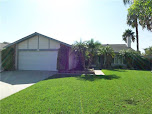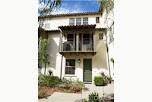Friday, July 17, 2015
HOME SALES PRICES AND VOLUME UP ACROSS THE U.S., POINTS TO CONTINUING RECOVERY
The latest figures are in, through the month of
May, and it all continues in a positive direction, as housing continues its
recovery mode, and to be a bright spot in the U.S. economy. At what point interest rates will be
raised, and what impact that will cause, because it will have consequences,
remains to be seen. The Fed has indicated later this year, although the recent
job report and unemployment stats did disappoint in the area of wages, and the
amount of people leaving the job search market. That aside, the jobs that have been added and the wages that
were predicted to increase last year and this, apparently have brought about
the desired effect. Overall, the
U.S. gained in total sales volume from May of 2014, (all following figures
based on the same time period for 2014), to rise 9.2% for May of 2015. The Midwest led the charge with 12.4%,
the Northeast was next with 11.3%, the West was next at 9% and the South
straggled a bit behind at 6%.
Prices were up overall in the U.S. 7.9%. This time, predictably, the West led at a rise of 10.2%, the
Midwest with 9.4%, the South at 8.2% and the Northeast struggling at 4.8%. (How much due to an abnormally long
winter of snow and ice?) Finally,
the sales volume by price range probably addresses the health of income wage
earners for the foreseeable future.
Since loans applicants are being properly vetted and there is no real stated
income product out there, these purchase price quadrants warrant some belief
that we have had a true recovery not just in real estate but in jobs, since
real estate ultimately reflects job stability. For the U.S. the increases in volume by price range are as
follows (numbers are per $1,000): 1) 100-250=3.6% 2) 250-500=17.4%
3) 500-750=14.5% 4) 750-1
million=12.5% 5) 1 Million +
=8%. It is debatable whether we
will continue to see a run up in both prices and volume as Americans anticipate
the rise in interest rates.
Although the Fed has made it clear that any such rises will be gradual
so as not to disrupt the economic revival. Some economists feel the price increase has already been
factored in as 30 year rates already rose the first week of July to their
highest for the year, in the low 4 percentile range. One thing is for sure, and that is that home ownership is
alive and well, and as this column predicted months ago, the Millennium Generation will continue to be a large
part of the engine that drives it.
Labels:
Chino Real Estate,
Jeanette Young,
Sherry Young
INVESTORS AND CASH BUYERS BACK AWAY FROM U.S. HOUSING
Realty-Trac, a research firm that tracks national and regional data, has
reported that fewer than 25% of single-family home and condominium purchases
were all-cash for May, national figures,
the lowest level since November 2009, and down from a peak of 42% of
purchases in February 2011. These figures drive home the point that the housing
market is standing on its own, with traditional buyers, as investors back away
from the "flip" market, of buying, rehabbing and quickly reselling
properties for a profit. This does
not mean that there are not some "buy and hold" investors still
trolling the market, but for now, the predominant purchaser appears to be the
owner occupant, or single investors exchanging and building their investment
portfolio.
Labels:
Chino Real Estate,
Jeanette Young,
Sherry Young
LOAN SURVEY SHOWS MANY BORROWERS STILL UNSURE OF QUALIFYING
A recent study by analyst firm IPSOS revealed that
borrowers still have 2 strong misnomers in the area of loan qualification; how
large a down payment in necessary, and what your FICO scores must be to
qualify. Happily, this column is
happy to spread the truth. More
than 36% surveyed still believed a 20% down payment was necessary. Nothing could be further from the
truth. Many people qualify at 10%,
but in fact, March of this year saw 29% of all loan qualifications with a 3%
down payment (FHA products mainly).
The survey on FICO scores revealed that 45% believed you must have a
score over 780. The truth about
FICO scores, which can be a little like a black hole, is that FHA requires 688
and conventional, generally speaking, comes in at 757. It always saves you time and headache
to speak to a lender before you look for a home, ensuring that you are looking
in your correct price range.
Another interesting note is that interest-only mortgages are making a
slight comeback. United Wholesale Mortgage plans, according to an article in
the OC Register, "to expand
access to the mortgages to borrowers beyond the wealthiest Americans who use
so-called jumbo loans.
Interest-only mortgages carry higher risks because they can leave
homeowners facing a jump in their bills down the road." Additionally, these loans can leave
homeowners upside down when there is an unexpected downshift in the market as
witnessed by the Great Recession.
But the lender promises to properly vet the qualifiers for this type of
mortgage. It does have its
attractions for homeowners who have liquidity in other areas of their
finances. On a $300,000 loan, the
monthly output is $1,31 versus $1,326.
However, note that these loans can climb as much as 2% annually and 5%
total--causing payments to jump to $1,838 after 10 years. Clearly this is a product that may have
use for a well qualified borrower who KNOWS they will be exiting the property
in less than 3 years, for example, and who feels the market appreciation will
be positive during that timeframe.
Labels:
Chino Real Estate,
Jeanette Young,
Sherry Young
Subscribe to:
Comments (Atom)



































































